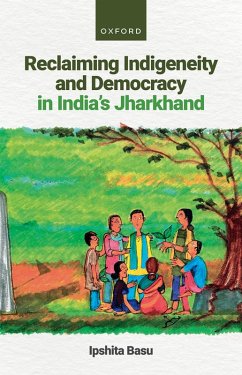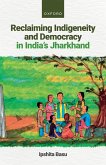Created in 2000 following a long-standing regional movement, Jharkhand-the land of forests-represents an important experiment in regional autonomy and self-determination for indigenous communities in a postcolonial democracy. Over two decades, Jharkhand has experienced a volatile political environment as competing political groups have mobilised indigenous subaltern communities for different ends. In Reclaiming Indigeneity and Democracy in India's Jharkhand, Ipshita Basu contributes to scholarship on critical social justice and indigeneity by highlighting 'relations of justification' as a central feature of group-based claims-making for social groups identifying with indigeneity in diverse ways. Specifically, the book focuses on reclaiming political recognition for Adivasis within the contemporary dynamics of majoritarian populism and the market economy. Uniting perspectives from philosophy (social justice), politics (democracy and public reasoning), and culture studies (identity), and based on ethnographic and archival research, the author indicates that when 'relations' are at the epicentre of claims-making, expressive attachments determine political activism over the instrumental choices that groups are compelled to make in the context of large power differentials. This book is a timely account of indigenous politics and is an attempt to foreground the complex 'political nature' of social justice claims-making in a democracy such as India.
Dieser Download kann aus rechtlichen Gründen nur mit Rechnungsadresse in A, B, BG, CY, CZ, D, DK, EW, E, FIN, F, GR, HR, H, IRL, I, LT, L, LR, M, NL, PL, P, R, S, SLO, SK ausgeliefert werden.









